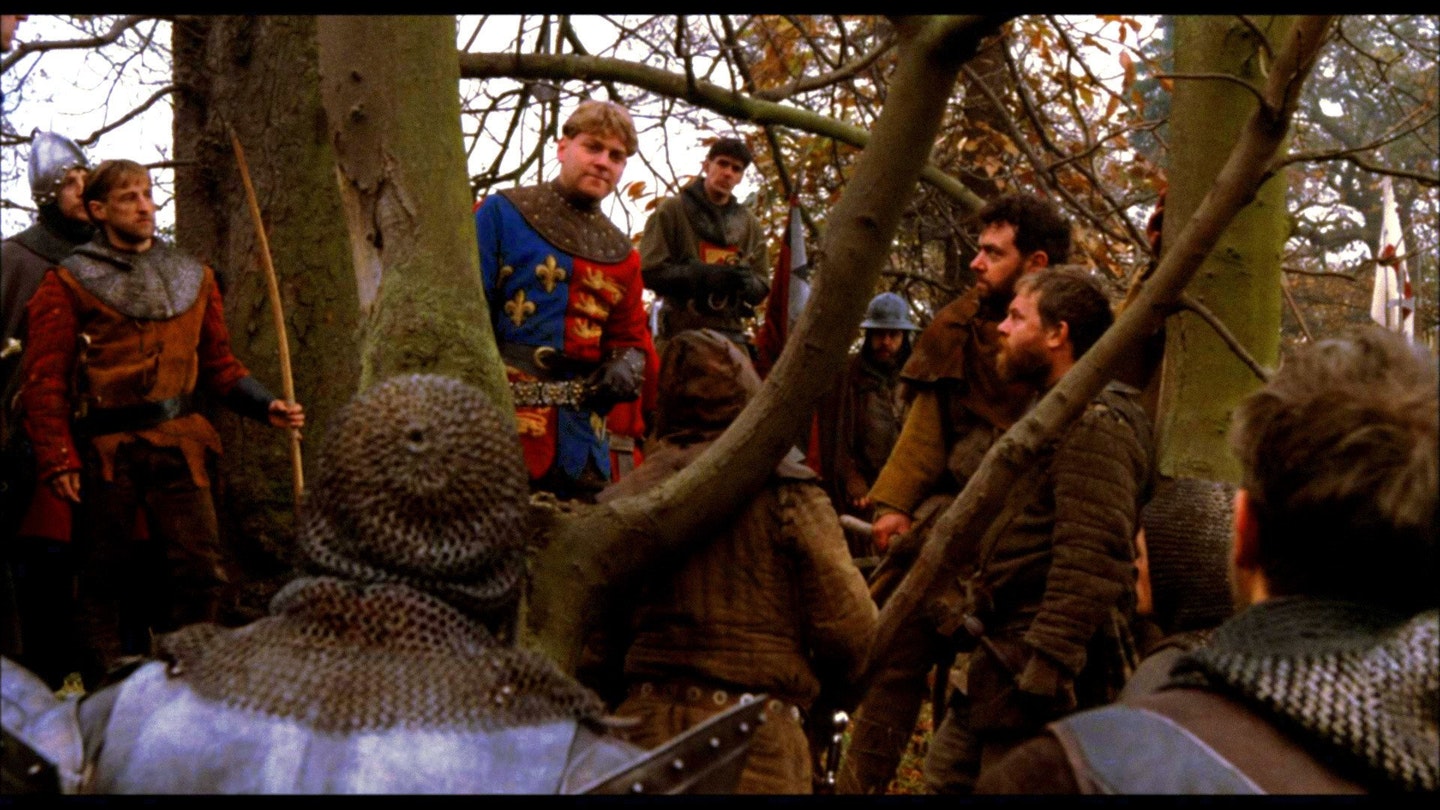Laurence Olivier had become convinced that Shakespeare belonged firmly on the stage during his participation in Paul Czinner's 1936 adaptation of As You Like It. However, having played Henry V in a radio broadcast in 1942, he had been persuaded of the patriotic potential of a film version by Filippo Del Giudice, the founder of the Two Cities company.
So, when William Wyler, Carol Reed and Terence Young all declined his invitation, Olivier agreed to make his directorial debut, although he wisely secured the services of editor Reginald Beck as his assistant. He also hired theatre critic Alan Dent to help him tailor the play for the screen and called on numerous stage pals to enhance to the picture's artistic legitimacy. However, he was denied the services of his wife, Vivien Leigh (as Katherine), as Hollywood producer David O. Selznick (who held her contract) felt the role was too small for a star of her magnitude.
The ingenious framing device, which commenced the action on the stage of the Globe Theatre in Shakespearean London, had been conceived by Anthony Asquith (who had directed Olivier in Moscow Nights, 1935 and The Demi-Paradise, 1943) and it set the tone for the film's blend of artifice and actuality, which was consciously designed to capture the imagination of audiences who had probably never seen the Bard before. Paul Sheriff and Carmen Dillon's theatrical sets and painted backdrops exploited the atmospheric beauty of the Technicolor stock and made the outdoor Agincourt sequences (filmed in Enniskerry with Irish soldiers) seem all the more expansive and thrilling. However, such perfectionism pushed the budget up to £475,000 (a staggering sum for a wartime project) and Rank had to step in to keep the production afloat.
Driven by William Walton's rousing score, the film was a transatlantic success and earned Olivier a special Oscar in 1946. Despite occasionally indulging the star's tendency to melodramatics, it remains an impressive achievement and makes for fascinating comparisons with Kenneth Branagh's 1989 version.
